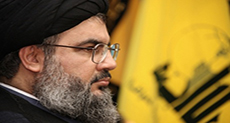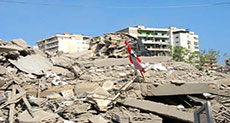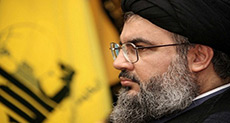"Israeli" army`s damaged reputation
Source: Aljazeera, 10-7-2007
By Christopher True
Traditionally, "Israel`s" army has been seen as one of the world`s most formidable fighting forces.
However, in 2006, Hizbullah, an organisation that "Israel" believed it would defeat in days, dealt what was seen by many as a devastating blow to the "Israeli" military`s reputation.
Analysis of "Israel`s" spectacularly successful campaign against Arab forces in 1967 and Hizbullah`s tactics in 2006 show striking parallels.
Forty years ago, "Israel" had used a combination of military intelligence, effective leadership and an unwavering belief in its cause to devastating effect.
In 2006, it was Hizbullah`s turn to harness these strengths and secure what even it saw as a seemingly improbable defeat against its enemy.
Intelligent thinking
Chita Cohen was the commander of a helicopter squadron when "Israel" launched its aerial attack, Moked (Operation Focus) on Arab forces at 7.45am on June 5, 1967.
Cohen attributes the success of Moked to three factors - the element of surprise, the targeting of weak points and the efficiency of the "Israeli" air force.
"Israeli" pilots came in below radar cover and attacked airfields that had been pinpointed in advance.
The bases were attacked in the morning, when Arab pilots were still breakfasting, and to keep up the momentum "Israeli" pilots often flew four or five sorties a day.
The first two of these factors were underpinned by the strength of "Israel`s" military intelligence, whose careful research paved the way for "Israel`s" success.
Mouin Rabbani, a Middle East expert at the International Crisis Group, says: "In 1967 the Arabs were unprepared for war, in 2006 Hizbullah were.
"Hizbullah had excellent intelligence about `Israel` while `Israel` had poor intelligence against Hizbullah."
A dedicated Hizbullah unit recruited agents who were able to gather information about "Israel`s" military bases and other high-level targets that were to prove vital in 2006.
In contrast, "Israeli" intelligence made a tactical mistake in believing that if operations were pursued against Hizbullah, support for the movement would be minimal.
Helped by funding from Iran, Hizbullah had widespread support among Lebanon`s towns and villages, paying for school fees and medical expenses, providing health insurance and offering money for people to start up small businesses.
Jamil Mroue, publisher of Beirut`s The Daily Star newspaper, said: "Israel viewed Hizbullah from a terrorist prism, it treated them as if they were not part of society itself.
"It attacked Hizbullah on the presumption that the local population would not help the movement, as it had failed to help the Palestinians in 1982."
Instead, much of the Lebanese population, even those who were not Shia, were to stand by Hizbullah during the conflict.
Lacking leadership
Mroue said: "The men who fought in 1967 went on to produce a long line of leaders, prime ministers, generals. They had a kind of quality.
"The men who lead the army now are no longer so focused, so intense, no longer burnt by the holocaust, which the leaders of 1967 were still close to."
Rabbani is blunter, he said: "`Israeli` society has changed vastly over the last 40 years. In many ways it has become lazy and corpulent.
"This is reflected in the state of the army, which has become a pig trough, a professional army in the worst sense of the word.
"It has become institutionalised and unable to learn from its mistakes. In terms of its leadership, it is the worst possible people that have risen to the top."
In 2006, this lack of leadership was reflected on the ground, with problems equipping reservists and misguided strategies on the ground.
In contrast Haaretz, the "Israeli" newspaper, was moved to describe Hizbullah as a trained, skilled, well-organised, and highly motivated infantry.
Collective inexperience
In 2006, the lack of leadership in the army was matched by the poor leadership of the "Israeli" government.
Ze`ev Schiff, Haaretz`s defence correspondent and an expert on the "Israeli" army, said: "This was the first time in `Israel`s` history that neither the prime minister, defence (War) minister or foreign minister had any military experience."
Schiff feels that "Israel`s" military operation was hindered by Ehud Olmert, the prime minister, whose handling of the war he describes as "a problem".
He believes that "Israel" should have struck with overwhelming force early on in order to prevent a prolonged campaign.
Schiff is critical of Olmert`s cabinet which debated this strategy, but then opted for a lesser use of air and artillery firepower and a limited movement of troops on the ground.
General Shlomo Gazit was head of research for Aman ("Israeli" army intelligence) in the run up to the 1967 war and director of Aman from 1974 to 1978.
He believes if the war in 2006 had been handled differently "Israel" "could have occupied Lebanon in 48 hours".
Gazit also criticises Olmert: "He didn`t have any military experience. He didn`t know the right questions to ask the military. He is totally blank when it comes to understanding the military, the Middle East and the Arab mentality."
The chronic lack of leadership within "Israel`s" army and government was a marked contrast to the direction given by Hassan Nasrallah, Hizbullah`s secretary general.
Nasrallah became a powerful symbol for Hizbullah`s resistance to "Israel" and it was clear that the movement`s fighters had a strong belief in him as their leader.
Just cause
The question of belief is the final contrast between 1967 and 2006.
In 1967 the "Israeli" nation was less than 20-years old and there was still a high degree of idealism among its population.
"Israel" argued that it had to make a pre-emptive attack on its Arab neighbours in order to defend itself and its actions were overwhelmingly supported by its citizens (settlers).
The takeover of areas such as East Jerusalem (al-Quds) gave tremendous zeal to the army in its operations.
In 2006, as the conflict in Lebanon dragged on, "Israel" seemed unsure both of its tactics and the legitimacy of its actions.
This time it was Hizbullah that felt it was fighting a just cause, defending the population from an invader which was to eventually kill more than 1,000 civilians.
As recriminations over Lebanon continue in "Israel", the country`s military, and indeed its government, have a number of difficult questions to face.




